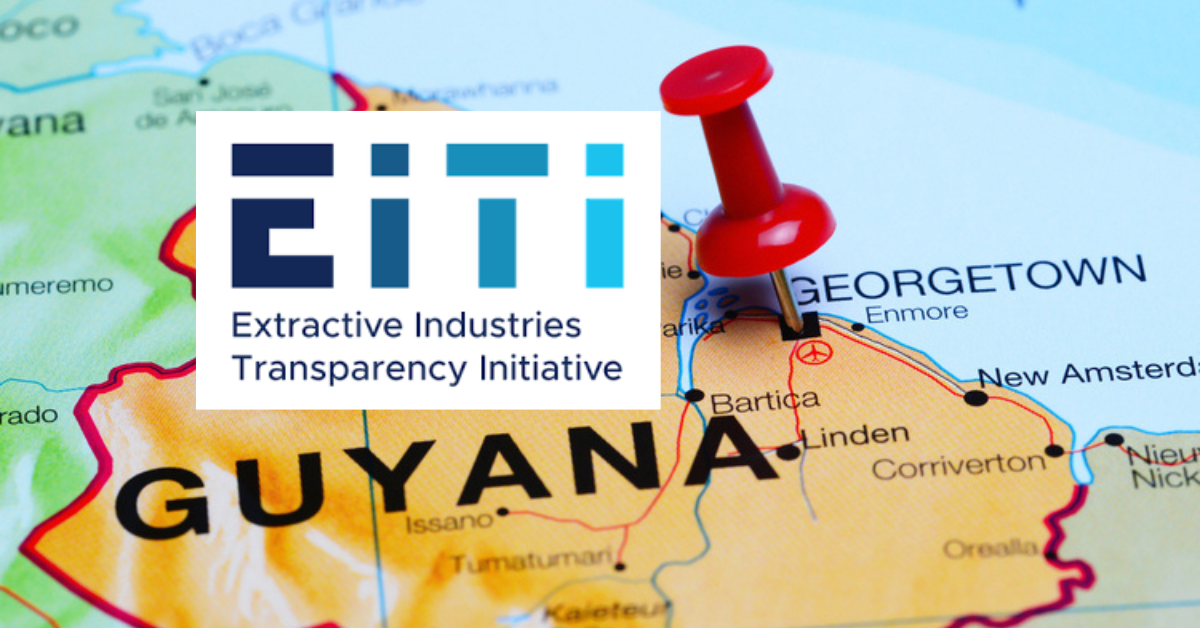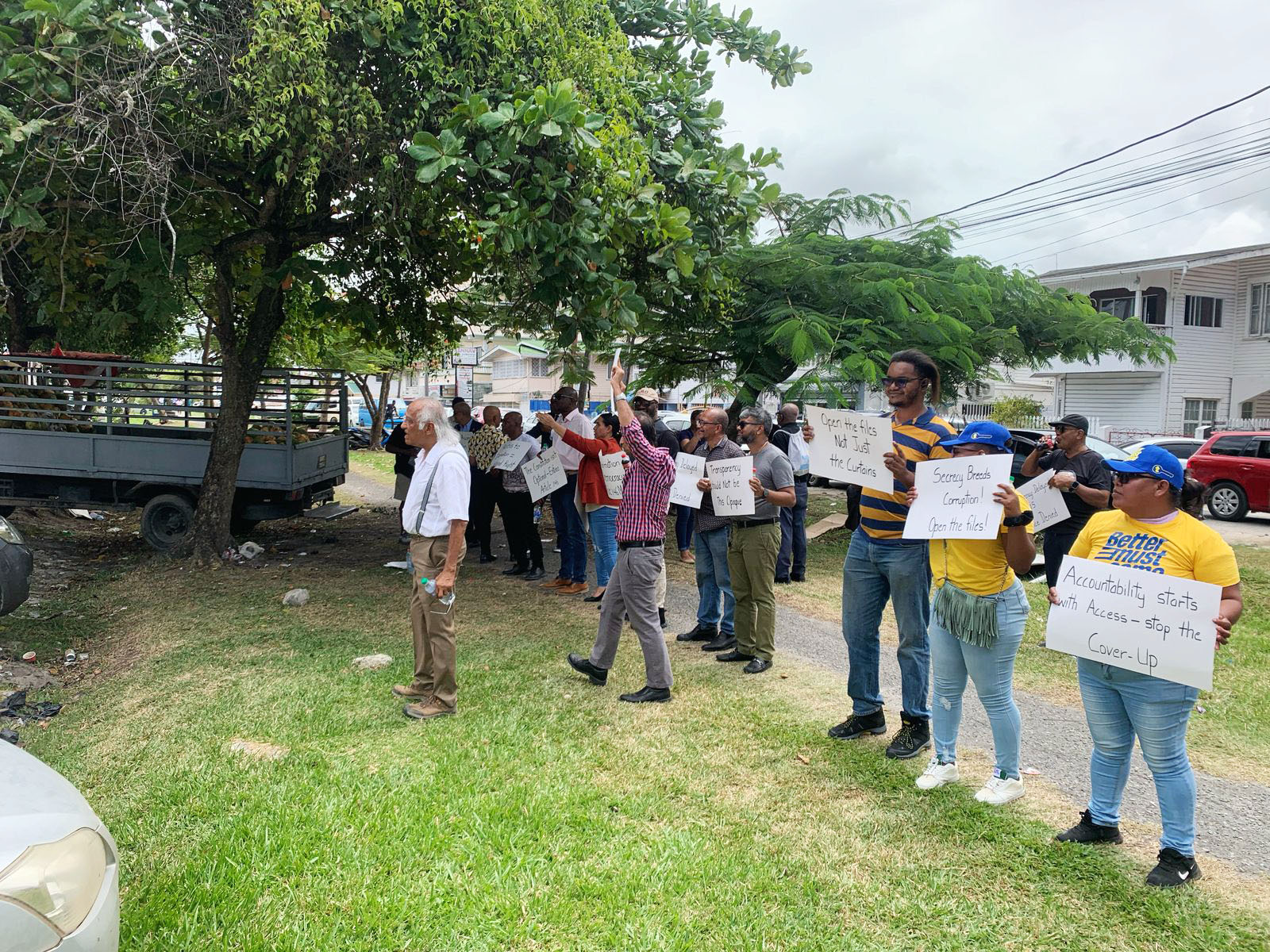What is in danger of being lost in the furore surrounding the temporary suspension of Guyana’s Extractive Industries Transparency Initiative (GYEITI) is that unless the Government mends its ways, it is courting more serious sanctions. Recognizing that the ultimate authority in the EITI is the Multi-Stakeholder Group (MSG) is the critical issue at stake. A member Government has a great deal of flexibility about how it administers its national EITI body as long as it is in conformity with the Principles and Objectives set out in the EITI Standard. What it cannot do is join or remain a member on its own terms when these are incompatible with the Standard.
EITI developed and takes very seriously the tri-partite arrangement whereby Government, the extractive industry and civil society jointly run the EITI, both at the national and international levels. This formula can only function successfully where compromise is the dominant strategy for decision-making. To the extent that compromise is the essence of EITI politics, the denouncing, confronting, monopolizing, and boycotting which has characterized Guyanese politics for decades is incompatible with the democratic culture of the EITI.
From the outset the Multi-Stakeholder Group that runs the GYEITI adopted the three-step system of decision-making recommended in the EITI Standard: firstly, seek compromise, secondly, accept the results of a vote if at least one member from each sector is part of the majority; thirdly, the co-chairs of each sector seek compromise and finally, when all else has failed, take an up-and-down vote. In its seven-year existence the EITI has taken only one vote prior to the recent one that provoked the Government commotion. The recent abstention vote by MSG-Civic was unanimous including all four, not two, members as alleged.
In our view the EITI provides a crucible for refining governance techniques applicable to a much broader spectrum of Guyana’s political life. Ironically, the lack of trust that characterizes Guyanese politics creates favourable circumstances for EITI’s formula of working in awkward alliances. It enables movement from modest to meaningful goals as trust is developed. All sides have something to gain from it and a lot to lose if it doesn’t work.
Policy Forum Guyana (PFG), a network of civic organizations, came into being prior to the 2015 elections to promote financial and environmental transparency. This orientation explains the early interest in EITI by PFG and also its acceptance of the invitation to take responsibility for devising the process by which civic candidates to MSG-Civic are selected. Since selection to the MSG is based on individuals, not organizations, PFG also provides a support platform to enable the MSG-Civic members to communicate collectively with the broader civil society.
It would be fair to say the collective governance experiment worked well in the formative stages. Three factors influenced this progress, namely the first Champion of EITI, Raphael Trotman, allowed the process to evolve and encouraged independence; the Permanent Secretary at MNR successfully guided awkward administrative challenges and thirdly, rotation of the MSG Chair through the three sector co-Chairs underlined the equality of status.
In addition to these factors, recognition of Guyana as a full member of EITI was facilitated by complementary conditions at that time, including a range of legislative and administrative measures that strengthened Government’s accounting procedures. These included creating constitutional Agencies directly responsible to Parliament in budgetary matters rather than to a single Ministry; creation of the Agencies SOCU and SARA, all of which contributed to Guyana moving up the Transparency International index.
However, since the Burnham era, Guyana has become adroit in projecting a progressive international image alongside a domestic democratic deficit. On the one hand, trumpeting a range of legislation such as an Integrity Commission, Ombudsman, Information Act, anti-corruption laws and ratifying the Convention on Corruption, while on the other, domestic implementation is practically zero, outweighed by money-laundering, gold smuggling and drug sales amounting to billions of dollars along with fostering new, dubious alliances with autocractic countries and disreputable corporations.
Sustaining this contradiction is now proving a challenge due to the EITI system of continuing assessment, known as Validation. EITI allows member countries seven years since their inception to get their house in order. Guyana is now in its seventh year without noticeable democratic progress. For example, the last monthly Minutes of MSG Meetings posted on the web-site – a requirement of the Standard – are those of the 42nd Meeting while the last Meeting constituted the 59th. Likewise, little effort has been directed at implementing recommendations from the Validation exercise and the Annual Reports, e. g. the Guyana Revenue Authority (GRA) provisions on confidentiality remain in place severely limiting the quality of EITI Reports. EITI Standard rules on Open Data are not respected – byzantine procedures are required to access mining information on the GYEITI web-site; Beneficial Ownership – creating a register of the real names of the people who own extraction companies – is progressing at a snail’s pace and public out-reach is almost non-existent. Token gestures have been made to encourage broad-based cooperation of the gold mining sector in providing data to participate in the reporting process.
It is difficult to convey how under-developed the concept of accountability has become as reflected in Guyana’s primitive and obsolete system of auditing public accounts. Along with Cuba, for example, Guyana is the only country in the entire Caribbean with no Electronics Transactions Act. Trinidad has had such an Act since 2000 and the rest followed a few years later. Guyana still relies on cash-based accounting, best suited to a cake-shop and hopelessly inadequate for any public accounts, much less those of an oil producing nation. A modern accruels-based system has been resisted for years. Our ramshackle accounting system, for example, cannot alert Guyana to dangerous financial risks such as not monitoring over-runs on the budget or borrowing too much money.
When a parallel situation developed in Ghana, shortly after it became an oil producer, recourse to an IMF for bail-out was required. Agencies such as the World Bank, IMF and the Inter-American Development Bank know exactly what is going on, but with Guyana on the spectrum of oil-producing nations, they choose to be more deferential than demanding. Political will for financial reform is feeble, as evidenced by the following gaps. The National Audit Office has never carried out any forensic audit required for legal prosecution of officials who may be suspected of financial fraud; the current Auditor-General was only appointed the year he was to retire and, therefore, can be dismissed at any time and the Parliamentary Accounts Committee’s last Report was for 2010-2012.
Moreover, modernizing public accounts in Guyana cannot get the attention it deserves since the Annual Report of the Auditor-General restricts itself to the exact format required by the Audit Act which pre-dates such things as electronic transactions.
This combination of inaction on implementing accountability reforms together with dismantling those already in place provides a consistent and serious incompatibility with the democratic culture required of EITI member countries. Should further sanctions be triggered for violations to the EITI Standard, the Government of Guyana will not need to seek ‘villains’ to blame: it is will have achieved this all by itself.
Policy Forum Guyana
2nd. March, 2023











